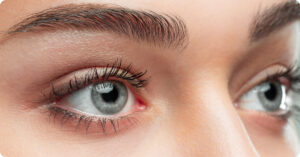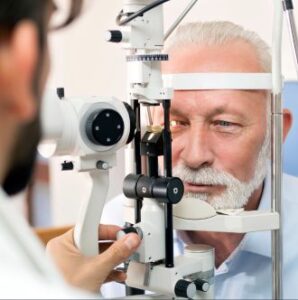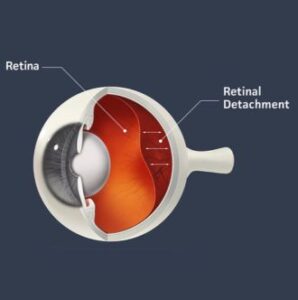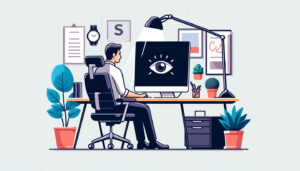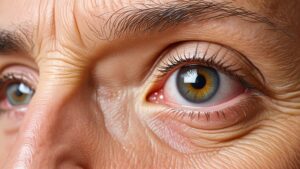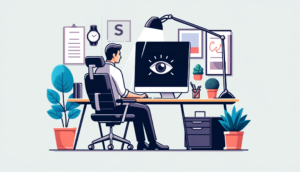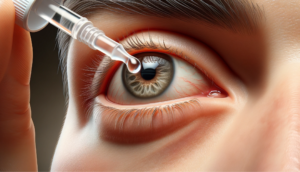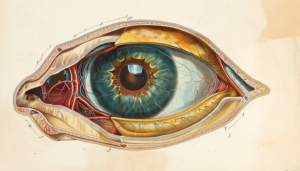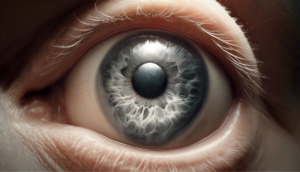Maintaining eye health involves scheduling a complete eye exam regularly. Many eye diseases and conditions — such as age-related macular degeneration (AMD), glaucoma and cataracts — do not have any symptoms other than vision loss. Getting your eyes checked by a licensed eye care provider (an ophthalmologist or optometrist) can help detect eye diseases and vision health issues years before they significantly impact your ability to see. As in most cases of medicine, early detection generally leads to better outcomes.
Signs That You Need to Schedule a Complete Eye Exam
- Difficulty driving at night
- Difficulty reading up close
- Increases in headaches
- Periodic or constant blurry vision
- Problems with glare
- Sudden loss of vision in one or both eyes
- New flashing lights (flashes)
- New floating objects in your vision (floaters)
- New onset of double vision
- Sudden blurry vision
- Any type of eye pain
- Any change in color vision
Recommended Eye Vision Exam Frequency by Age
Depending on your age, family history and health status, you should consider scheduling your eye exams by a licensed eyecare provider (e.g., an optometrist or ophthalmologist) at regular intervals. Ideally, individuals who wear glasses, have a family history of eye diseases, and who have had previous eye injuries or chronic health conditions should schedule an eye exam once every 12 months.

ADULTS 18 TO 39
Individuals should schedule a basic eye exam every two to five years, or if there are changes in vision. Individuals with health conditions, a genetic disposition to eye diseases or who wear corrective lenses should schedule more frequent eye exams.
ADULTS 40 TO 60
As people age, they are at greater risk for developing AMD, presbyopia, glaucoma and cataracts, as well as other chronic eye diseases and conditions. After age 40, it is important to schedule a basic eye exam every two to four years.

As you age, eye exams should become more frequent because the risk of developing eye problems increases.
ADULTS 60 OR OLDER
Those over age 60 should schedule an eye vision exam every one to two years in order to maintain their eye health and catch vision problems early.
How to Schedule a Comprehensive Eye Exam
If you have seen an eye doctor for a comprehensive eye exam within the last 12 months, you may not need to schedule another eye exam. However, if you are experiencing changes in your vision or are worried about your vision, be sure to check your symptoms to determine if you need to schedule an appointment with an optometrist. It is important to note that if you are experiencing blurry vision, having trouble driving at night, or have red eyes or eye pain, it is time to find an eye doctor to determine the causes of your vision changes. Your eye doctor can construct a treatment plan for you, along with prescription glasses or contact lenses.
Maintaining Your Eye Health
In addition to scheduling regular eye exams, it is important to take steps to preserve your eye health. If you spend long hours working at a computer or staring at digital screens, you may want to invest in a pair of computer glasses to limit your blue light exposure. To prevent UV damage, it is important to always wear sunglasses on bright, sunny days — even in winter. Dietary and lifestyle changes can have a significant impact on eye health. For example, smoking is associated with an increased risk of macular degeneration.

SOURCES
https://www.vsp.com/eye-exam-needed.html
http://visionsource.com/blog/signs-its-time-for-an-eye-exam/
https://www.preventblindness.org/how-often-should-i-have-eye-exam
https://www.aoa.org/patients-and-public/caring-for-your-vision/comprehensive-eye-and-vision-examination/recommended-examination-frequency-for-pediatric-patients-and-adults?sso=y
https://www.mayoclinic.org/tests-procedures/eye-exam/details/why-its-done/icc-20189629
